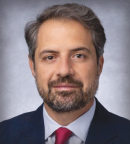Treatment with obecabtagene autoleucel was the focus of the phase Ib/II multicenter FELIX study of more than 100 adults with relapsed or refractory B-cell acute lymphoblastic leukemia (ALL).1 The initial report in 2024 revealed a rate of complete remission or complete remission with incomplete hematologic recovery of 78%. This CD19-directed, genetically modified autologous T-cell immunotherapy was approved for this hematologic malignancy in late 2024.
In addition to following the efficacy data with this immunotherapy at a median follow-up of now about 3 years, Elias Jabbour, MD, Professor of Medicine in the Department of Leukemia at The University of Texas MD Anderson Cancer Center, Houston, and colleagues investigated clinical factors that may predict long-term outcomes in these patients. These updated results were presented at the 2025 Society of Hematologic Oncology (SOHO) Annual Meeting.2
“These data reinforce that obecabtagene autoleucel persistence is important for long-term survival without additional treatments, suggesting its potential as a definitive treatment,” they stated.
Efficacy and Safety Updates
After about 3 years of follow-up, a sustained benefit in duration of response, event-free survival, and overall survival was observed. After 2 years, the probability of remaining in remission was 54.1%, and a total of 38.4% of responders remained in remission without consolidative allogeneic stem cell transplant (SCT) or other treatments, noted Dr. Jabbour.

The less tumor burden you have at the time of lymphodepletion, the better the outcome is.— ELIAS JABBOUR, MD
Tweet this quote
“In addition, in terms of event-free survival, there were minimal events happening beyond 2 years, with a median event-free survival of almost 12 months,” he remarked. The probability of overall survival, without censoring for consolidative allogeneic SCT, at 24 months was 46.0%, with a median of 17.1 months (range, 12.9–28.8 months) in 127 infused patients from the FELIX trial.
As for safety, no new signals were observed at the long-term follow-up of 32.8 months (an additional 11.3 months since the last data cut). There was no change in the incidence rates of cytokine-release syndrome and immune effector cell–associated neurotoxicity syndrome. However, there were a few new infections reported: one case each of viral pneumonia, recurrent chest infection, enterocolitis infectious and hospital-acquired pneumonia, and multilobar pneumonia. Two new malignancies were observed—lentigo maligna melanoma and urothelial transitional cell carcinoma—although both were considered to be unrelated to treatment with obecabtagene autoleucel, according to Dr. Jabbour. “Furthermore, we have not seen any T-cell or B-cell malignancies reported,” he noted.
Predictors of Sustained Remission
The univariate analysis focused on the 127 patients from the FELIX trial who had received at least one infusion of obecabtagene autoleucel. The investigators performed a logistics regression analysis against baseline characteristics of those who achieved a complete remission or a complete remission with incomplete hematologic recovery. A multivariate analysis attempted to identify potential factors linked to improvement in event-free or overall survival.
The investigators identified three factors to be linked to higher rates of complete remission or complete remission with incomplete hematologic recovery: Philadelphia chromosome–positive disease, earlier use of obecabtagene autoleucel, and less refractory disease. In addition, lower disease burden at lymphodepletion and ongoing chimeric antigen receptor (CAR) T-cell persistence were found to be independent factors associated with long-term remission and survival. “In every exercise, the less tumor burden you have at the time of lymphodepletion, the better the outcome is,” Dr. Jabbour noted.
The characteristics linked to improvement in event-free survival were low bone marrow blasts at lymphodepletion, prior SCT, ongoing CAR T-cell persistence, and earlier use of obecabtagene autoleucel. Similarly, the characteristics associated with improvement in overall survival were low bone marrow blasts at lymphodepletion (< 5% vs > 75%: event-free survival hazard ratio [HR] = 0.3 [95% confidence interval (CI) = 0.1–0.6]; overall survival HR = 0.3, 95% CI = 0.1–0.5), ongoing CAR T-cell persistence (event-free survival HR = 0.4, 95% CI = 0.2–0.9; overall survival HR = 0.5, 95% CI = 0.3–0.9), and no prior use of the antibody-drug conjugate inotuzumab ozogamicin (no vs yes: overall survival HR = 0.6, 95% CI = 0.3–0.9).
“With 3 years of follow-up, obecabtagene autoleucel is leading to sustained remissions, translating into 2-year event-free survival and overall survival of over 45%,” concluded Dr. Jabbour. “These results suggest that a proportion of patients may not need further therapy, although longer follow-up, further analyses, and independent variation are needed to confirm these results.”
DISCLOSURE: Dr. Jabbour has served as a consultant or advisor to Pfizer, Takeda Pharmaceutical, Amgen, AbbVie, Bristol Myers Squibb, Adaptive Biotechnologies, Genentech, Autolus, Ascentage Pharma, Taiho Pharmaceutical, Novartis, TargetRx, and Terns Pharmaceuticals; has received research fundings from Pfizer, Adaptive Biotechnologies, Ascentage Pharma, AbbVie, Takeda Pharmaceutical, Johnson & Johnson/Janssen, Jazz Pharmaceuticals, Terns Pharmaceuticals, Taiho Pharmaceutical, Novartis, Amgen, and TargetRx; and has received reimbursement for travel and accommodations expenses from Pfizer, Aptitude Health, Autolus, Nucleus Global, Onviv, MD Education, HMP Education, and Daiichi Sankyo Nordics.
REFERENCES
1. Roddie C, Sandhu KS, Tholouli E, et al: Obecabtagene autoleucel in adults with B-cell acute lymphoblastic leukemia. N Engl J Med 391:2219-2230, 2024.
2. Park JH, Roddie C, Tholouli E, et al: Can chimeric antigen receptor T-cell therapy be a definitive treatment for adult relapsed/refractory B-cell acute lymphoblastic leukemia without stem cell transplant? Long-term findings and predictors of sustained remission for obecabtagene autoleucel. 2025 SOHO Annual Meeting. Abstract ALL-712. Presented September 3, 2025.
EXPERT POINT OF VIEW
Eunice Wang, MD, shared these thoughts on the long-term findings with obecabtagene autoleucel in B-cell acute lymphoblastic leukemia (B-ALL). Dr. Wang is Chief of the Leukemia Service at Roswell Park Comprehensive Cancer Center, Buffalo, New York.
“Obecabtagene autoleucel is the third chimeric antigen receptor (CAR) T-cell therapy approved for adults with relapsed or refractory B-ALL. Regulatory approval was based on the promising results of the phase Ib/II FELIX trial, showing a 73% overall response rate. At the 2025 Society of Hematologic Oncology (SOHO) Annual Meeting, Jabbour et al presented a 3-year update on the FELIX trial. It was encouraging to see that more than half of patients remained in remission more than 2 years after CAR T-cell therapy. Median overall survival of all 127 patients was 17.1 months. It also was good to see that almost 40% of responding patients remained in remission without receiving subsequent allogeneic stem cell transplant.”

Eunice Wang, MD
Dr. Wang continued: “These results further substantiate CD19-directed CAR T-cell therapy as a definitive, potentially curative approach for adults with relapsed or refractory B-ALL, negating the need for transplant with associated treatment-related morbidity. What these results do not tell us is whether obecabtagene autoleucel constitutes the best-in-class CAR T-cell modality for this disease. For comparison, after 3 years of follow-up, the median overall survival of all 78 patients with relapsed or refractory B-ALL treated with the CAR T-cell therapy targeting CD19 brexucabtagene autoleucel in the ZUMA-3 trial was 25.6 months, with responding patients achieving a median overall survival of 38.9 months.1 However, only 16% of responding patients in the ZUMA-3 trial were still alive without subsequent transplant as opposed to 38.4% of responders in the FELIX trial.”
In addition, at the 2025 SOHO Annual Meeting, Jabbour et al detailed the factors predicting improved outcomes following the use of obecabtagene autoleucel: lower marrow blasts; no prior transplant or therapy with blinatumomab [a bispecific T-cell engager targeting CD19 on B cells and CD3 on T cells] or inotuzumab ozogamicin [an antibody-drug conjugate targeting CD22 on B cells]; fewer than three prior lines of therapy; and ongoing CAR T-cell persistence. “This information is of immediate value in helping to determine the best timing (ie, earlier is better) and disease status (ie, less is better) of patients being considered for obecabtagene autoleucel therapy in the current era,” concluded Dr. Wang.
DISCLOSURE: Dr. Wang has received clinical research support from AbbVie, Astellas Pharma, Biomea Fusion, Cellectis, Cullinan Therapeutics, GluBio Therapeutics, Kura Oncology, Schrödinger, and Sumitomo Pharma Oncology; has served on a scientific advisory board for AbbVie, Blueprint Medicines, Daiichi Sankyo, Dark Blue Therapeutics, Kite Pharma, Kura Oncology, Novartis Pharmaceuticals, QIAGEN, Schrödinger, Servier Pharmaceuticals, and Syndax; and has served on a promotional advisory board for Astellas Pharma and Pfizer.
REFERENCE
1. Shah BD, Cassaday RD, Park JH, et al: Three-year analysis of adult patients with relapsed or refractory B-cell acute lymphoblastic leukemia treated with brexucabtagene autoleucel in ZUMA-3. Leukemia 39:1058-1068, 2025.

